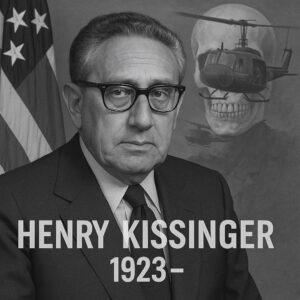Henry Kissinger, born on May 27, 1923, is a figure whose name conjures a mixture of admiration, scorn, and heated debate. A key architect of U.S. foreign policy during the Cold War, Kissinger’s career spanned presidential administrations and continents, from Vietnam to China. But for all his successes in diplomacy, his legacy is complicated—marked by bold strategies, difficult decisions, and deep controversy.
As National Security Advisor and Secretary of State under Presidents Nixon and Ford, Kissinger played a pivotal role in the most significant geopolitical shifts of the 20th century. His policy of “realpolitik” emphasized pragmatic, often hard-nosed diplomacy, favoring national interest over ideological purity. The opening of diplomatic relations with China in 1972, culminating in President Nixon’s visit to Beijing, is one of his most celebrated accomplishments, shifting the balance of the Cold War.
However, Kissinger’s tenure was also marked by decisions that remain deeply controversial. His role in the secret bombing of Cambodia, the support for military dictatorships in Latin America, and his involvement in the coup that overthrew Chile’s democratically elected government in 1973 have led to accusations of complicity in human rights abuses. Critics argue that Kissinger’s actions prioritized geopolitical stability over the well-being of people, leading to devastating consequences for millions.
Kissinger’s legacy is a reminder that the world of international diplomacy is often fraught with moral ambiguity. While his strategies were effective in achieving certain U.S. objectives, they also left deep scars. His influence continues to shape discussions on foreign policy, ethics, and the use of power in global affairs.

